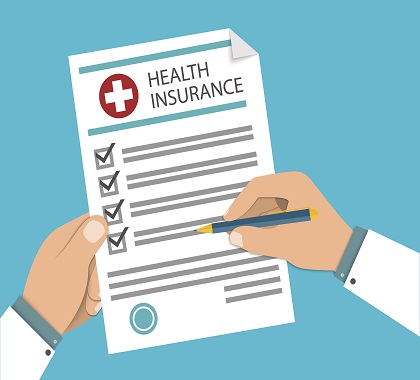On December 3, the U.S. Department of Health and Human Services (HHS) released a 119-page report titled, “Reforming America’s Healthcare System Through Choice and Competition.” The report cites excessive mandates, licensing restrictions, and a general lack of competition as driving forces for sky-high premiums, limited coverage options, and out-of-control costs.
For years, numerous federal and state mandates have forced health insurance companies to only offer plans that cover a wide range of medical conditions and services while banning the sale of so-called “skinny” plans. As a result, these mandates have skewed the health care market, dramatically increased costs, and driven many young and healthy Americans to forgo health insurance.
In the report, HHS recommends that legislators repeal unnecessary mandates and allow for the sale of affordable, less-comprehensive insurance plans such as association health plans, short-term, limited-duration plans, or catastrophic plans.
Onerous regulations and runaway health care costs are also producing an ever-worsening provider shortage. Nearly 84 million Americans, a majority of whom reside in rural areas, have inadequate access to physicians. A lack of medical professionals and facilities only exacerbates the prohibitively high costs of health care, further reducing low- and middle-income Americans’ ability to receive health care services.
To counter the growing threat of doctor shortages, the report suggests states allow non-physicians (nurse practitioners and physician assistants) and non-dentist providers (hygienists and dental therapists) to independently treat patients. Furthermore, HHS promotes reforming scope-of-practice statutes and recommends increasing the use of telemedicine, which allows doctors to deliver health care via telecommunications. Telemedicine can revolutionize health care by replicating in-person care at a significantly lower cost than traditional in-person care.
HHS also identifies Certificate of Need (CON) laws as an obstacle to a robust free-market health care system. CON laws, which require new medical providers to prove to local government that additional medical facilities or services are needed, favor existing medical providers. CON laws significantly reduce competition, leaving consumers with fewer high-quality health care choices. HHS urges state legislators to either repeal or scale back CON laws.
The report comes a year after President Donald Trump issued an executive order to promote health care choice and competition. The Trump administration has already made significant progress at the federal level, including the elimination of the individual mandate, the extension of short-term, limited-duration health plans, and the expansion of association health plans. Additionally, the Trump administration has allowed HHS to grant Section 1115 and 1332 waivers that give states more flexibility to implement health care reforms.
State legislators should take full advantage of the administration’s willingness to allow more choice and competition in the health care system. For decades, The Heartland Institute has urged legislators to implement many of the same recommendations presented by HHS. When the new legislative session begins, legislators should consider reforms outlined in Heartland’s “Don’t Wait for Congress to ‘Fix’ Health Care” Policy Brief. Reforms include applying for Section 1115 and Section 1332 waivers, expanding scope of practice rules, repealing costly mandated benefits, and eliminating CON laws, among other free-market health care solutions.
Heartland has an array of publications and podcasts discussing the problems and solutions of the current health care crisis. Legislators needing additional research materials, policy expertise, and in-person testimony can always reach out to Heartland government relations at 312-377-4000 or [email protected].
What We’re Working On
Education
School Choice Leads to Better Mental Health for Students
In this Research & Commentary, Policy Analyst Tim Benson analyzes a joint study from Corey DeAngelis of the Cato Institute and Angela K. Dills of Western Carolina University that finds school choice programs produce positive mental health outcomes for students. The groundbreaking study reveals that states that offer private school choice through “broad-based” voucher programs and charter schools are also experiencing a decline in adolescent suicide rates.
Energy & Environment
Study Finds Carbon-Dioxide Taxes Would Significantly Depress GDP and Economic Growth
In this Research & Commentary, Policy Analyst Tim Benson writes about a Capital Alpha Partners for the Institute for Energy Research that reveals six potential carbon dioxide taxes would reduce economic growth, not efficiently raise revenue, exacerbate long-term fiscal challenges on the states, and would be inconsistent with the long-term Paris Agreement emissions reduction goals.
Health Care
Wisconsin Should Retain New Medicaid Work Requirements
In this Research & Commentary, Senior Policy Analyst Matthew Glans examines Wisconsin’s welfare reform efforts and why the legislature should consider preserving the reforms by writing them into law. “The real focus of welfare programs must be to provide temporary or supplemental assistance while encouraging work and independence. Wisconsin’s welfare reforms are an example for all states, the legislature should move to preserve these improvements,” wrote Glans.
Budget & Tax
Gas Tax Hikes Will Not Solve Alabama’s Road Funding Woes
In this Research & Commentary, Senior Policy Analyst Matthew Glans examines Alabama’s gasoline tax revenue shortfalls and the potential for future tax hikes. “As sales of fuel efficient vehicles continue to expand, motor-fuel tax revenues will decline more rapidly. Alabama must find new and more efficient ways to cover the costs of transportation projects if it wants to avoid a fiscal disaster,” wrote Glans.
From Our Free-Market Friends
Death, Taxes, and Toll Hikes
Pennsylvania’s state toll road will increase rates by another 6 percent beginning January—the tenth rate increase in the past 10 years. Currently, all revenue from tolls help fund mass transit programs in the state. However, toll-paying commuters resent having to fund a mass transit system that they hardly ever use. In fact, two national trucking companies filed a federal lawsuit seeking nearly $6 billion in toll refunds, arguing it is illegal for Pennsylvania to fund public transit with toll fares.
Click here to subscribe to The Leaflet, the weekly government relations e-newsletter.




